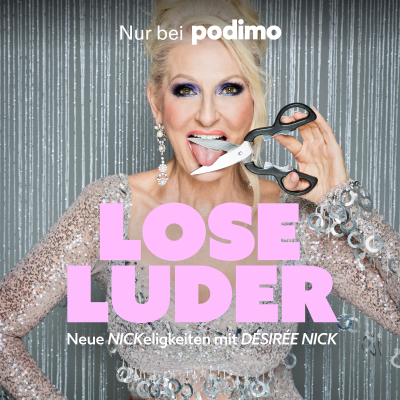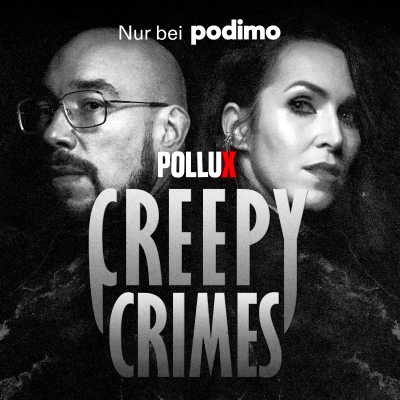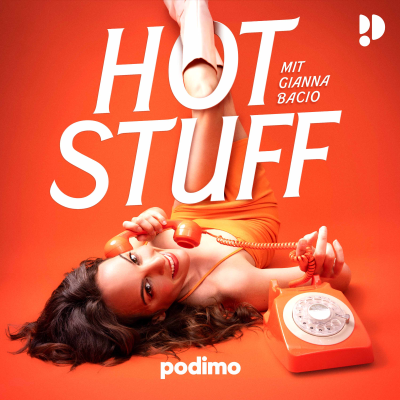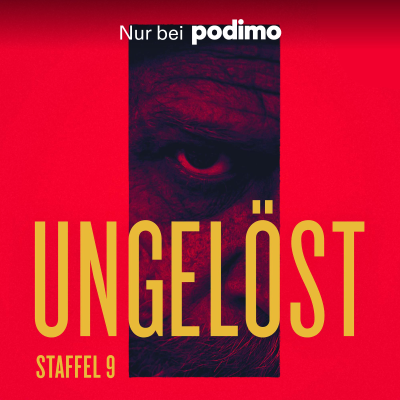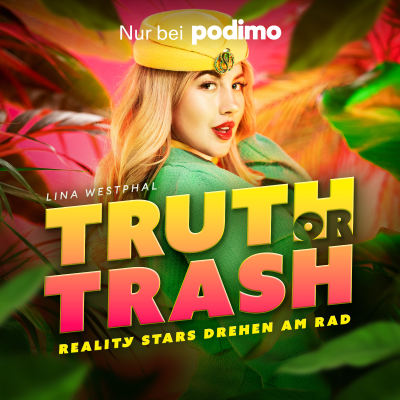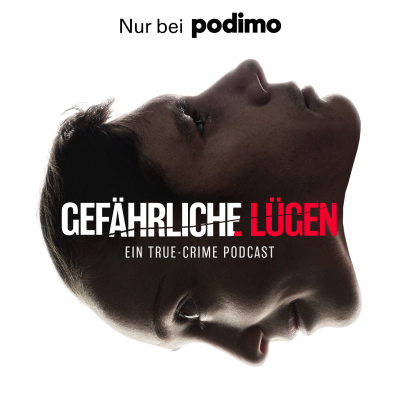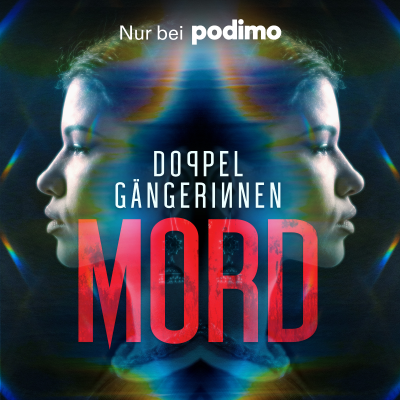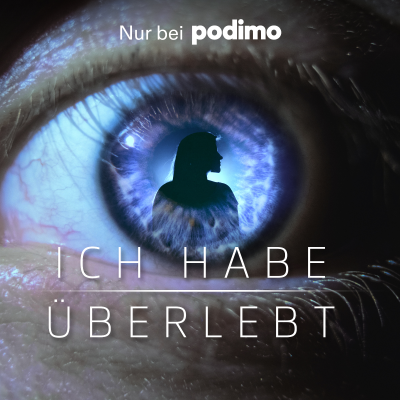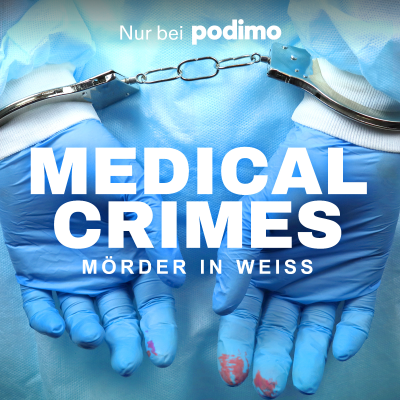
Nebelhorn
Deutsch
Kostenlos bei Podimo
Kostenlos hören bei Podimo
Starte jetzt und verbinde dich mit deinen Lieblingspodcaster*innen
- Vertraut von über 1 Mio. deutschen Hörer*innen
- Über 1.000 lokale Podcasts und Shows – nur bei Podimo
- Keine Zahlung nötig
Mehr Nebelhorn
Der Podcast der Scientists for Future Hamburg
Alle Folgen
21 FolgenNH021 Hochwasserkatastrophen am Beispiel Ahrtal
* Heidi Danzl * Christian Darsow-Fromm * Daniel * Pascal Pein * Eveline Lemke Zum Zeitpunkt der Veröffentlichung im Sommer 2023 liegt die Hochwasserkatastrophe im Ahrtal selbst zwei Jahre zurück und die Aufnahme etwa ein Jahr. Im Sommer 2023 wurden viele Hitzerekorde gebrochen und die Berichte über Flutkatastrophen weltweit schien kein Ende zu nehmen. Beim Schneiden im August lag der Blick noch auf dem Jahrhunderthochwasser in Slowenien, aber weitere Ereignisse in China, Griechenland, Brasilien und Libyen folgten in kurzem Abstand. Betroffene erleben die Situation sehr unterschiedlich, alle haben jedoch gemein, dass die Infrastruktur zerstört ist, dass es Unmengen an Verschmutzung und Müll zu beseitigen gilt und dass viele auf unterschiedlichste Weise mit dem Wiederaufbau zu kämpfen haben. Was diese Überflutungen kurz- und langfristig bedeuten können, und wie jeder von uns helfen kann, bzw sich vorbereiten kann, hören wir in dieser Podcastfolge am Beispiel der Flutkatastrophe im Ahrtal 2021. Ein Jahr nach der Flutkatastrophe, im Sommer 2022 hat sich Heidi mit Eveline Lemke getroffen, um über die sichtbaren und unsichtbaren Schäden im Ahrtal zu berichten. Gastgeberin Eveline ist Staatsministerin a.D., Rheinland Pfalz und Expertin für Kreislaufwirtschaft. Weiterhin ist sie Unternehmensberaterin und Gründerin von Thinking Circular [https://thinking-circular.com/de/]. Im Gespräch wird deutlich, wie komplex die Aufräumarbeiten und der Wiederaufbau nach einem Hochwasser sind und dass nach wie vor eine Vielzahl an Lehren gezogen werden müssen. Zentrale Fragen sind: Wie kommt es zu einer Katastrophe? War der Auslöser Politikversagen, war es ein Vorbote einer sichtbar werdende Klimakatastrophe oder spielen mehrere Faktoren zusammen? Wie geht man mit über einer Million Tonnen Hochwasserunrat um, der aufgrund der schieren Masse schwer sortiert werden kann und der unter anderem Giftstoffe enthält? Wie können Betroffene unkompliziert Hilfe erhalten? Evelines Appell an die Wissenschaft: Bringt die Forschung so schnell wie möglich in die praktische Anwendung, beispielsweise über Modellprojekte. Werdet politisch und nehmt in der Öffentlichkeit klare Positionen ein. Die erfahrene Unternehmensberaterin ruft alle auf, sich über Themen wie Katastrophen, Versicherungen, Kreislaufwirtschaft, Nachhaltigkeit, Umwelt und Klima zu informieren und in den Dialog zu treten. Es kann jeden treffen. Es hilft vorbereitet zu sein. Es hilft vernetzt zu sein. Ergänzende Links: * #Bericht #Schlussfolgerungen #Hochwasserabfall #Ahrtal #Flut 2021 [https://thinking-circular.com/wp-content/uploads/2022/03/BerichtHochwasserabfallAhrtalThinkingCircular.pdf] * Thinking Circular [https://thinking-circular.com/de/] * Thinking Circular Academy [https://www.eveline-lemke.de/2023/07/thinking-circular-academy/] * Alternativer Schnitt des Gesprächs bei Thinking Circular: Zu Besuch im Ahrtal [https://pod.co/gruene-wirtschaft-fuer-morgen-circular-economy/besuch-im-ahrtal] * projekt.together – Circular Futures [https://circularfutures.de/] * Umweltlernschule+ [https://uls-plus.de/] * VHS Klimafit [https://www.klimafit-kurs.de/] * Lernen nach der Flut [https://www.eveline-lemke.de/2022/03/lernen-nach-der-flut-abfallwirtschaft-im-focus/] * Centre for Climate Resilience [https://www.uni-augsburg.de/en/forschung/einrichtungen/institute/zentrum-fur-klimaresilienz/] * Schwammstadt [https://de.wikipedia.org/wiki/Schwammstadt] * Aktuelle Projekte zur Schwammstadt [https://schwammstadt.de/] * museum of modern ahrts (momahr.de) [https://momahr.de/] * Aktuelle Entwicklungen im Ahrtal (Stand: September 2023) [https://www.focus.de/earth/report/wir-merken-die-touristen-kommen-beliebt-wie-nie-das-ueberraschende-comeback-des-ahrtals_id_205809408.html]
NH020 Urgency in a World of Slow Violence
* Christian Darsow-Fromm * Pascal Pein * Heidi Danzl * Daniel * Scott Slovic Our guest Scott Slovic is a global leader in the field of environmental humanities, who has taught at many universities in the United States and abroad. He is University Distinguished Professor of Environmental Humanities at the University of Idaho in the United States, where he has taught since 2012. He was the founding president of the Association for the Study of Literature and Environment in the early 1990s, and he served as editor-in-chief of ISLE: Interdisciplinary Studies in Literature and Environment, the central journal in the field of ecocriticism (environmental literary studies), from 1995 to 2020. He has written, edited, or co-edited thirty books, including most recently Nature and Literary Studies and The Bloomsbury Handbook to the Medical-Environmental Humanities, both of which appeared in 2022. He has also published more than 300 articles, presented more than 800 keynote and invited lectures throughout the world, and been a Fulbright Scholar in Germany, Japan, China, and Turkey. Much of his current work explores how information is collected, communicated, and received in the contexts of humanitarian and environmental crises. In addition to co-editing the book series Routledge Studies in World Literatures and the Environment and Routledge Environmental Humanities, he is a contributing editor for the website www.arithmeticofcompassion.org [http://www.arithmeticofcompassion.org]. In this episode, Scott describes several aspects of how the human psyche works in an environmental crisis, drawing on real life and literary examples. In regards to this topic, he and Heidi, who has previously met him several times at conferences, at his home and at lectures, discuss Scott’s work and a few important terms via Zoom. The conversation includes a previous ‚Nebelhorn‘ episode with Maria Kadushi [https://s4f-hamburg.de/2022/08/19/19-mobile-afya/], who is the founder of the African medical health app M-Afya. By occasionally drawing on her work as an example, terms like these are illuminated: psychic numbing, compassion fatigue, hyperobjects, aspects of scale, slow violence, conversion, eco recovery memoir, conversion narrative, medical environmental humanities, psychic-inefficacy, pseudoinefficacy, as well as power of a single story vs. challenge of too many stories. We also learn why Scott finds it important to keep planting intellectual seeds and hear about some of his life experiences. Unser Gast Scott Slovic ist ein weltweit führender Experte auf dem Gebiet der Umwelt-Humanwissenschaften, der an vielen Universitäten in den USA und weltweit gelehrt hat. Er ist mehrfach ausgezeichneter Universitätsprofessor für Environmental Humanities (Umweltorientierte Geisteswissenschaften) an der University of Idaho in den Vereinigten Staaten, wo er seit 2012 lehrt. Anfang der 1990er Jahre war er Gründungspräsident der „Association for the Study of Literature and Environment“ und von 1995 bis 2020 Chefredakteur von ISLE: Interdisciplinary Studies in Literature and Environment, der zentralen Zeitschrift im Bereich der Ökokritik (umweltorientierte Kultur- und Literaturwissenschaft). Er hat dreißig Bücher geschrieben, herausgegeben oder mit herausgegeben, darunter zuletzt Nature and Literary Studies und The Bloomsbury Handbook to the Medical-Environmental Humanities, die beide im Jahr 2022 erschienen sind. Darüber hinaus hat er mehr als 300 Artikel veröffentlicht, mehr als 800 Haupt- und Gastvorträge in der ganzen Welt gehalten und war Fulbright-Stipendiat in Deutschland, Japan, China und der Türkei. Ein Großteil seiner aktuellen Arbeit befasst sich mit der Frage, wie Informationen im Zusammenhang mit humanitären und Umweltkrisen gesammelt, weitergegeben und wahrgenommen werden. Er ist nicht nur Mitherausgeber der Buchreihen Routledge Studies in World Literatures and the Environment und Routledge Environmental Humanities, sondern auch mitwirkender Herausgeber der Website www.arithmeticofcompassion.org [http://www.arithmeticofcompassion.org]. In dieser Folge beschreibt Scott anhand von Beispielen aus dem wirklichen Leben und der Literatur verschiedene Aspekte der menschlichen Psyche in einer Umweltkrise. Zu diesem Thema diskutieren er und Heidi, die ihn schon mehrmals auf Konferenzen, bei ihm zu Hause und bei Vorträgen getroffen hat, per Zoom über Scotts Arbeit und einige wichtige Begriffe. Das Gespräch schließt eine frühere „Nebelhorn“-Episode mit Maria Kadushi [https://s4f-hamburg.de/2022/08/19/19-mobile-afya/] ein, der Gründerin der afrikanischen Gesundheits-App M-Afya. Am Beispiel ihrer Arbeit werden gelegentlich Begriffe wie diese beleuchtet: Emotionale Taubheit, Mitgefühlsmüdigigkeit, Hyperobjekte, „aspects of scale“, langsame Gewalt, Konversion, „eco recovery memoir“, Konversionserzählung, medizinisch-ökologische Geisteswissenschaften, psychische Ineffizienz, Pseudoineffizienz sowie die Macht einer einzelnen Geschichte gegenüber der Herausforderung zu vieler Geschichten. Wir erfahren auch, warum Scott es für wichtig hält, weiterhin intellektuelle Samen zu pflanzen, und hören von einigen seiner Lebenserfahrungen. Supplemental/Ergänzende Links: * https://www.uidaho.edu/class/english/academics/graduate/mfa-creative-writing/mfa-faculty/scott-slovic * https://www.asle.org/stay-informed/asle-news/a-tribute-to-scott-slovic-isle-editor-1995-2020/ * https://www.worldliteraturetoday.org/author/scott-slovic * Nature and Literary Studies [https://www.cambridge.org/core/books/nature-and-literary-studies/3C92E2CABA3A03D2A17E93E064A97C7C], Edited by Peter Remien, Lewis-Clark State College, Idaho, Scott Slovic, University of Idaho * The Bloomsbury Handbook to the Medical-Environmental Humanities [https://www.bloomsbury.com/us/bloomsbury-handbook-to-the-medicalenvironmental-humanities-9781350197305/], Scott Slovic (Anthology Editor), Swarnalatha Rangarajan (Anthology Editor), Vidya Sarveswaran (Anthology Editor) * Thinking like a mountain [https://en.wikipedia.org/wiki/Thinking_like_a_mountain] by Aldo Leopold * Slow Violence [https://www.hup.harvard.edu/catalog.php?isbn=9780674072343] by Rob Nixon * Rob Nixon on Slow Violence and Climate Justice [https://www.youtube.com/watch?v=f80TPfqR0kw] (YouTube) * The Heart of Redness [https://medhum.med.nyu.edu/view/12142] by Zakes Mda * The Plague [https://en.wikipedia.org/wiki/The_Plague_(novel)] by Albert Camus * H is for Hawk [https://en.wikipedia.org/wiki/H_is_for_Hawk] by Helen Macdonald * Year of Wonders [https://en.wikipedia.org/wiki/Year_of_Wonders] by Geraldine Brooks * Joni Mitchell, „Big Yellow Taxi“ [https://www.youtube.com/watch?v=94bdMSCdw20] (YouTube) * https://www.mobileafya.com/
NH019 Mobile Afya: an innovative digital approach
* Christian Darsow-Fromm * Thomas Gebken * Pascal Pein * Heidi Danzl * Daniel * Mariatheresa Samson Kaduschi Our guest Mariatheresa Samson Kadushi is a Tanzanian health-tech innovator located in Hamburg, Germany. She is working to transform digital health in Africa. She ist the founder of „Mobile Afya“, the first USSD (Unstructured Supplementary Service Data) application in Africa using internet-free mobile technology to provide basic health information and education in local and native languages starting with Swahili in Tanzania, East Africa. „Mobile Afya“ is working to expand to environmental education in relation to public health. The application is developed by medical professionals, doctors, engineers and tech innovators. Mariatheresa is a recipient of IVLP (International Visitor Leadership Program) – a state fellowship for emerging African leaders under the US Department of State, a NTDs (Neglected tropical diseases) youth champion and a YALI (The Young African Leaders Initiative) alumni. Do you want to help provide more people with access to the Mobile Afya app? Any donation to support the project [https://www.mobileafya.com/donate] is welcome. Otherwise, you can also share this episode with others. That already helps a lot too. Unser Gast Mariatheresa Samson Kadushi ist eine tansanische Gesundheitstechnologie-Innovatorin, die von Hamburg aus an der Transformation des digitalen Gesundheitswesen in Afrika arbeitet. Sie ist Gründerin von „Mobile Afya“, der ersten USSD-Anwendung (Unstructured Supplementary Service Data) in Afrika, die eine internetunabhängige Mobilfunktechnologie nutzt, um grundlegende Gesundheitsinformationen und -aufklärung in lokalen und einheimischen Sprachen bereitzustellen, angefangen mit Suaheli in Tansania, Ostafrika. „Mobile Afya“ arbeitet an der Ausweitung auf die Umwelterziehung im Zusammenhang mit der öffentlichen Gesundheit. Die Anwendung wird von Medizinern, Ärzten, Ingenieuren und technischen Innovatoren entwickelt. Mariatheresa ist Empfängerin des IVLP (International Visitor Leadership Program) – einem staatlichen Stipendium für aufstrebende afrikanische Führungskräfte im Rahmen des US-Außenministeriums, ein NTDs (Neglected tropical diseases) Youth Champion und eine YALI (The Young African Leaders Initiative) Alumni. Wollt ihr dabei helfen, mehr Menschen den Zugang zur App Mobile Afya zu ermöglichen? Jede Spende zur Unterstützung des Projektes [https://www.mobileafya.com/donate] ist willkommen. Ansonsten könnt ihr auch diese Episode mit Anderen teilen. Das hilft auch schon sehr. Supplemental/Ergänzende Links: * https://www.mobileafya.com/ * https://www.linkedin.com/in/mariatheresakadushi/ * https://www.linkedin.com/company/mobileafya/ * https://twitter.com/mobileafya * https://twitter.com/Mariatheresa_tz * https://www.instagram.com/mobileafya/ * https://www.youthcombatingntds.org/ * https://www.who.int/health-topics/neglected-tropical-diseases * https://yali.state.gov/courses/
NH018 The New Institute
* Pascal Pein * Heidi Danzl * Daniel * Christoph Gottschalk Das „The New Institute“ in Hamburg ist ein neuer Think Thank an der Alster in Hamburg. In öffentlichen und geschützten Formaten werden transsektorale Verbindungen geknüpft, um Hebel zu finden die eine gesellschaftliche Änderung zu einer nachhaltigen Zukunft bewirken. The New Institute bringt Menschen zusammen, die gewöhnlicherweise nicht zusammenarbeiten, z.B. Philosophen mit Produktions- und Lieferkettenmanagern. Bereiche wie Wissenschaft, Aktivismus und Kunst tauchen in Themen ein wie Digitaltransformierung, Verhaltensforschung, Kommunikationsformen, Demokratie, Nachhaltigkeit. Ein zentraler Aspekt dabei ist Vertrauen, das u.a. dadurch aufgebaut wird, dass innovative Denker:innen als „Fellows“ auf 6000 m2 im neu renovierten Warburger Ensemble an der Alster zusammenleben und arbeiten. Dieser interdisziplinäre Gedankenaustausch soll dabei nicht in einem „Elfenbeinturm“ stattfinden, sondern auch interessierten Bürger:innen bei offenen Veranstaltungen einen Zugang ermöglichen. Gegründet wurde es von Erck Rickmers, einem Unternehmer der damit seinen Beitrag zu einer nachhaltigen Zukunft leisten will. Christoph Gottschalk ist CEO und gibt uns in diesem Podcast einen Einblick in die Entstehungsgeschichte und die Visionen des TNI. Weiterführende Links * https://thenew.institute/ [https://thenew.institute/]
NH017 Bergrettung
* Pascal Pein * Heidi Danzl * Daniel * Mark Weiner Mark S. Weiner is a professor emeritus of constitutional law at Rutgers University, a Fulbright alumni to Iceland, Sweden, and Austria, the author of four award-winning books, and a filmmaker. He has taught at various universities at home and internationally, including in Germany and Austria, on topics ranging from constitutional law to the history of law in American film. Fun fact: Mark is also a certified as wilderness and front-country emergency medical technician and loves to go hiking with his wife. In this podcast, recorded on December 10, 2021, we discuss his latest film project, a philosophical documentary about the Austrian mountain rescue service, the Bergrettung, which has with the working title “A New Light in the Mountains.” The documentary is being produced by his non-profit video production company Hidden Cabinet Films, which aims at bringing fundamental concepts about law and society into cinematic form. Funding has been provided by the Botstiber Institute for Austrian-American Studies, which kickstarted the project, the Reid Hoffman Foundation, and over 125 individual donors. Weiner argues that the Bergrettung offers a “counter-cultural” Alpine ethics that can serve as the foundation for building a political theory for liberal democratic society “from the bottom up”—one that rests on the importance of place and local attachment. He thinks this issue has been insufficiently theorized because of controversies stemming from World War II and the Holocaust about demands for local, territorial self-governance, which are often dismissed as a part of right-wing consciousness. He asks the question: Where do large-scale solidaristic, voluntary commitments come from? Mark argues that sense of place is a central part of the human condition, and he thus sees the Bergrettung as an example for a humanistic institution. The scholar and film maker concludes: the altruistic energy within the Bergrettung community comes from a commitment to and love of a particular place, a village, a valley or a set of mountains, from the rootedness of local communities. He wonders if this aspect of the Bergrettung can show us how liberal-democratic society could be organized more effectively, and is convinced that it points us to a variety of other significant social and political insights. The film has been delayed due to corona but should be available by 2024. Updates about the film can be found under “News” on the website of Hidden Cabinet Films. In this podcast about local collective consciousness, it’s perhaps worth mentioning that Mark has a part-Jewish heritage (the Weiners were Jews from western Ukraine), and his other family heritage is from Croatia and Serbia. We are posting this podcast in the midst of the war in Ukraine, which perhaps draws a new light on nationalistic sentiments and the need to have a more nuanced understanding of “sense of place.” Supplemental Links: * Mark Weiners’ profile at Rutgers University is here: https://law.rutgers.edu/directory/view/profmsw [https://law.rutgers.edu/directory/view/profmsw] * An interview with Mark Weiner on the website of the Botstiber Institute: https://botstiberbiaas.org/grantees/mark-weiner/ [https://botstiberbiaas.org/grantees/mark-weiner/] * Home page of Botstiber Institute which kick-started this project: https://botstiberbiaas.org/ [https://botstiberbiaas.org/] * Further info and updates about the film can be found under “News” on the website of: Hidden Cabinet Films (Mark Weiners’ non profit video production company): https://hiddencabinet.org/ [https://hiddencabinet.org/] * If you are interested in donating to fund an incredible documentary please do so here: https://hiddencabinet.org/donate/ [https://hiddencabinet.org/donate/] * Further infos about Mark Weiner on this website (his books, other films, projects and teaching): https://worldsoflaw.wordpress.com/ [https://worldsoflaw.wordpress.com/] * Claudia Stöckl „Frühstück bei mir“ Ukranie/Russland https://oe3.orf.at/sendungen/stories/3022451/ [https://oe3.orf.at/sendungen/stories/3022451/] (Austrian podcast asking questions in regards to nationalism in the current Ukraine/Russia conflict) Errata: Mark writes in his feedback to the podcast: One of two issues I saw are in the margin of totally reasonable error in conversation, e.g., one time I say that there are about 13,000 members in the BRD and another time I say „about 12,000″—that’s OK, it’s fluctuated a bit (the statistics are here: https://bergrettung.at/medien/statistik/ [https://bergrettung.at/medien/statistik/]). And then I refer to the existence of the Austrian Alpenverein before the war which was dissolved into the German branch, but formally before the war it was the „German and Austrian Alpenverein“ and then the Austrian part was dissolved.
